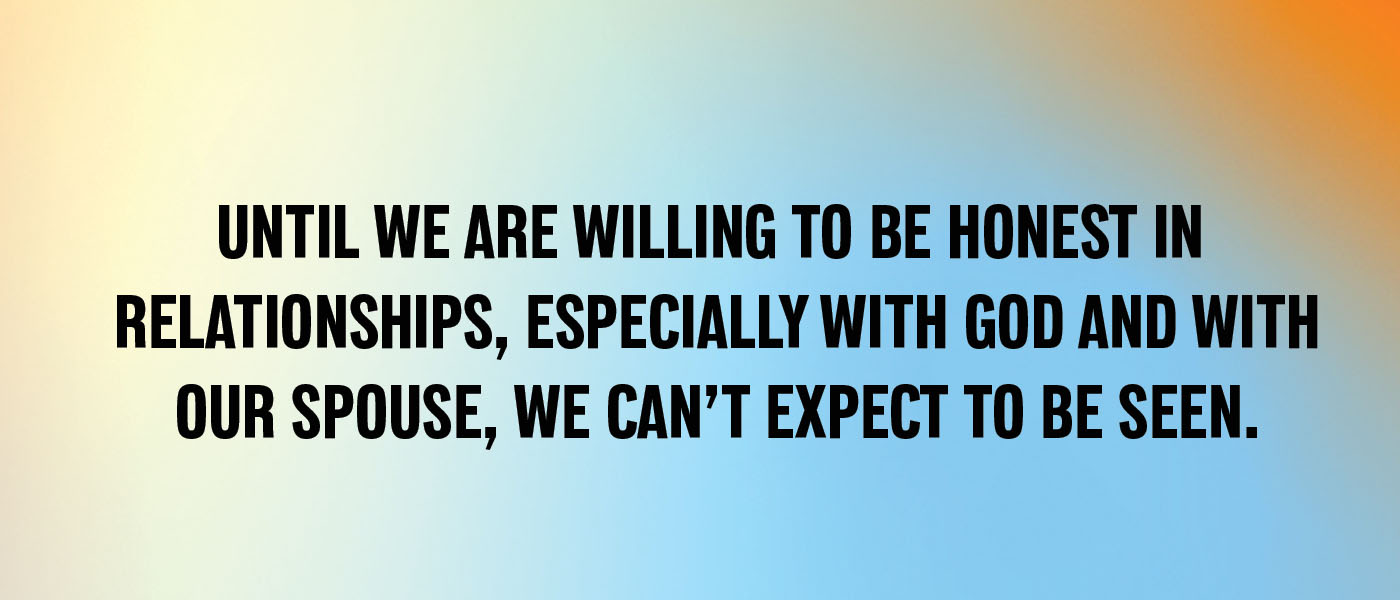Two Equals One: A Devotional for Couples (For Husbands)Sample


Complementing, Not Completing
In the New Testament, the Gospels record the story of a woman with an “issue of blood” (Luke 8:43–48 KJV). According to Jewish law, she would have been considered “unclean,” and, furthermore, anyone who came in contact with her would have become unclean as well. Scripture tells us she had been bleeding for twelve years.
One day, Jesus passed near her in a crowd. She reached out and touched Jesus and was immediately healed. What happened next is easy to miss because it seems like the miracle should get the most attention, right? But Jesus made a point of stopping when everyone else would have kept on walking through the crowded street, and he asked, “Who touched me?” (Luke 8:45). You can almost hear his disciples’ tone when they referred to the bustling crowds pressing in on all sides, but Jesus insisted. Jesus stopped. Who touched me?
This woman now had a choice—she’d already gotten her miracle.
She could walk away healed.
But instead, she confessed.
This woman did the unthinkable—she touched Jesus in an unclean state, and now, likely for the first time in twelve years, she was in the middle of an enormous crowd of people . . . and she confessed.
Don’t miss what Jesus told her: “Daughter, your faith has made you well; go in peace, and be healed of your disease” (Mark 5:34 ESV).
Confession, honesty, and open communication earned her the title of “daughter.” She was seen in that moment—vulnerable and known. Instead of being condemned, she was praised. Instead of receiving judgment, she received freedom, but it took the courage to confess.
Being seen can be scary, but it’s the only way to be known. Until we are willing to be honest in our relationships, especially with God and with our spouse, we can’t expect to be seen. We can’t expect to be fully known.
You might be thinking, How does this relate to me? Some random, unnamed woman in Scripture who was healed of a physical, internal, uncommon hemorrhage. How does this connect to me?
The answer, frankly, is everything.
The question “Is my spouse everything I need them to be?” then becomes “How can I love everything that’s different about my spouse?” This may mean sacrificing some of your independence but not your individuality. It doesn’t mean you stop being who you are to cater to your spouse; when two equals one, you find out how to become more of who you are. And your spouse is the one encouraging you to be who you are. A loving marriage is two different individuals working as a team. The day we stopped letting our differences divide us, they began to bring us together again.
But it starts first with love. When you love someone enough that you choose them for life, it stands to reason that there are things you can learn from them—ways that they can help you become a better, more fulfilled person. The trouble is we often don’t realize how many differences we have until after marriage, and then some differences aren’t as endearing as we used to think!
Differences won’t reconcile themselves, but with some hard work, humility, and God’s formula of two equals one, all differences can be reconciled.
Respond
- What differences do you and your spouse need to discuss today?
- Develop a plan for reconciling those differences and briefly explain.
Prayer
Lord, help me be sensitive to things my spouse and I need to work through. Give me wisdom and compassion as we address those things. Fill us with your strength and help us to love like you.
Scripture
About this Plan

These five daily readings are based on the book Two Equals One: A Marriage Equation for Love, Laughter, and Longevity by Jimmy Rollins and Irene Rollins. Wherever your marriage is currently, Jimmy and Irene want to help you get back to a place of love, laughter, and longevity. A place where two equals one.
More









